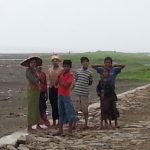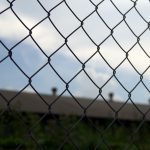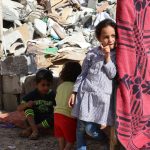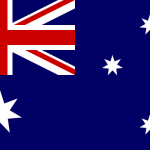West Papua: Australia’s Neighbour Under Siege
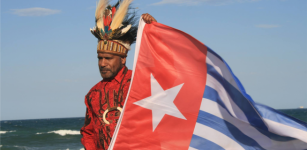
Indonesian police arrested 106 West Papuans praying in a park in the coastal city of Sorong in West Papua last Saturday. The group was celebrating the eighth anniversary of the West Papua Committee (KNPB): a non-violent organisation campaigning for self-determination.
Authorities said the activists were taken to the Sorong police station as they’d been calling out pro-independence slogans. After questioning, most were released, but seven were detained – accused of treason and provocation.
West Papuan independence leader Benny Wenda (pictured) said it was no surprise Indonesian police targeted peaceful protesters as it’s a common occurrence in the region.
Mass arrests
“Over 4,000 West Papuan people have been unlawfully arrested this year alone just for peacefully protesting,” Mr Wenda told Sydney Criminal Lawyers®. He added that the government is trying to prevent the world from finding out about “the secret genocide and illegal occupation in West Papua.”
Thousands of people were arrested in early May this year, when Indonesian security forces cracked down on rallies held across West Papua.
The protests were in support of the United Liberation Movement for West Papua – a coalition of independence movements formed in December 2014 – and their bid to gain full membership in the Melanesian Spearhead Group.
The Indonesian occupation
Since Indonesia began its occupation of the restive region 53 years ago, an estimated 500,000 local people have been killed under harsh military and police repression.
Indonesian president Joko Widodo had promised improvements in West Papua at the time of his election in July 2014. But Indonesia’s leading human rights organisation announced in May this year that human rights abuses are as rampant as they were under previous governments.
“We are kept like prisoners in our own land, unable to freely express our identity or make choices over our own future,” said Wenda, international lobbyist for the Free West Papua Campaign. He describes the Indigenous people as living in constant fear of being “the next ones to be killed.”
Transmigration
And West Papuans are fast becoming a minority in their own land. The government’s decades-old transmigration program – that resettles people from highly populated islands like Java to low-density areas – is marginalising the local people, both socially and economically.
Wenda has pointed out that in 1971 West Papuans made up 96 percent of the population, but today they only make up 49 percent of the people living in the region.
And despite claims by a government official earlier this year that the policy was stopped three years ago, this isn’t the case.
In October 2014, then Indonesian minister of villages and transmigration, Marwan Jafar, announced the government’s transmigration program would be continuing and further stated in June last year that because of its success, it would be expanding.
And it’s clear the boats are still arriving.
International recognition
However, the West Papuan campaign has been gaining traction in the international arena over recent months.
At the 71st UN General Assembly held in New York in September this year, seven Pacific Island nations called for immediate global attention to human rights abuses in West Papua.
As Wenda put it, “this signals a major turning point as it is the first time that we have had so much international support at a UN level for our struggle since the 1960s.”
And the United Liberation Movement for West Papua (ULMWP) could be given full membership into the Melanesian Spearhead Group (MSG) in December this year. The MSG is an intergovernmental organisation of Melanesian states promoting economic growth.
The ULMWP has had observer status in the group since 2014, but full membership would see West Papua recognised as a political identity by foreign nations.
This prospect rattles Jakarta. Indonesia has been recognised as an associate member of MSG since June last year.
At the Indian Ocean Rim Association ministerial meeting in Bali last month, Indonesian defence minister Ryamizard Ryacudu asked Australian foreign minister Julie Bishop to caution MSG member countries against allowing the West Papua coalition membership into their group.
The defence minister warned Ms Bishop that the West Papua issue could pose a “stumbling block” to closer bilateral ties between the two nations.
The Act of NO Choice
In 1962 the New York Agreement resulted in the United Nations assuming administration of West Papua – then known as West New Guinea – after former coloniser the Netherlands left.
The agreement allowed Indonesia to assume occupation of the territory in 1963 on the proviso that a referendum was carried out to give West Papuan people a choice between remaining part of Indonesia or becoming an independent nation.
Following widespread resistance to Indonesian rule, the UN brokered Act of Free Choice referendum was held in 1969. However, the Indonesian military selected only 1,062 West Papuan representatives to vote and under threat of death, all of them voted to stay with Indonesia.
Calls for a just vote
Wenda refers to the referendum as the Act of NO Choice. And today, he’s calling for an internationally supervised vote on independence. “We have the fundamental right to self-determination that was promised to us by the UN, but stolen by Indonesia,” he outlined.
On May 3 this year, he hosted a meeting of the International Parliamentarians for West Papua at the Houses of Parliament in London. The Westminster Declaration for an internationally supervised vote for self-determination in West Papua was signed.
Those present at the meeting included the Tongan prime minister Akilisi Pōhiva and leader of the British Labour Party Jeremy Corbyn.
The independence leader
A Nobel Peace Prize nominee, Benny Wenda fled West Papua after being imprisoned by Indonesian authorities on charges he states were politically motivated because of his involvement in the independence movement. He was granted political asylum by the British government in 2003.
“As the indigenous Melanesian people in a Melanesian country our right to sovereignty is guaranteed to us,” said Wenda, who now lives in Oxford. “We call upon the world to please not forget us, but to help us in our campaign to be free people at last.”
Although the Indonesian government split West Papua into two provinces in 2003, this article refers to the whole region as West Papua, as the indigenous people do.


